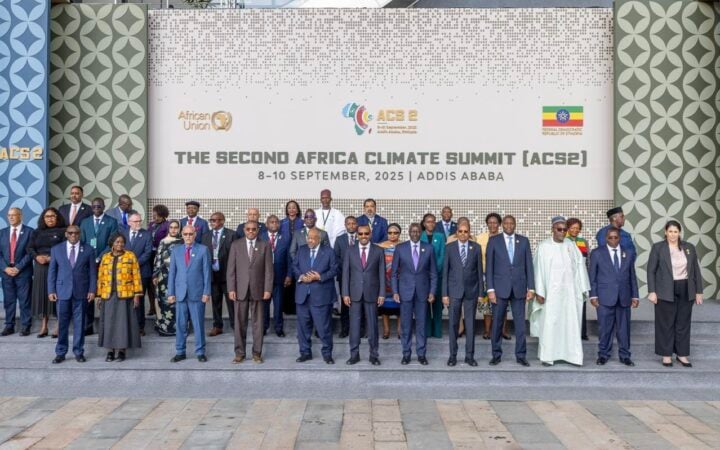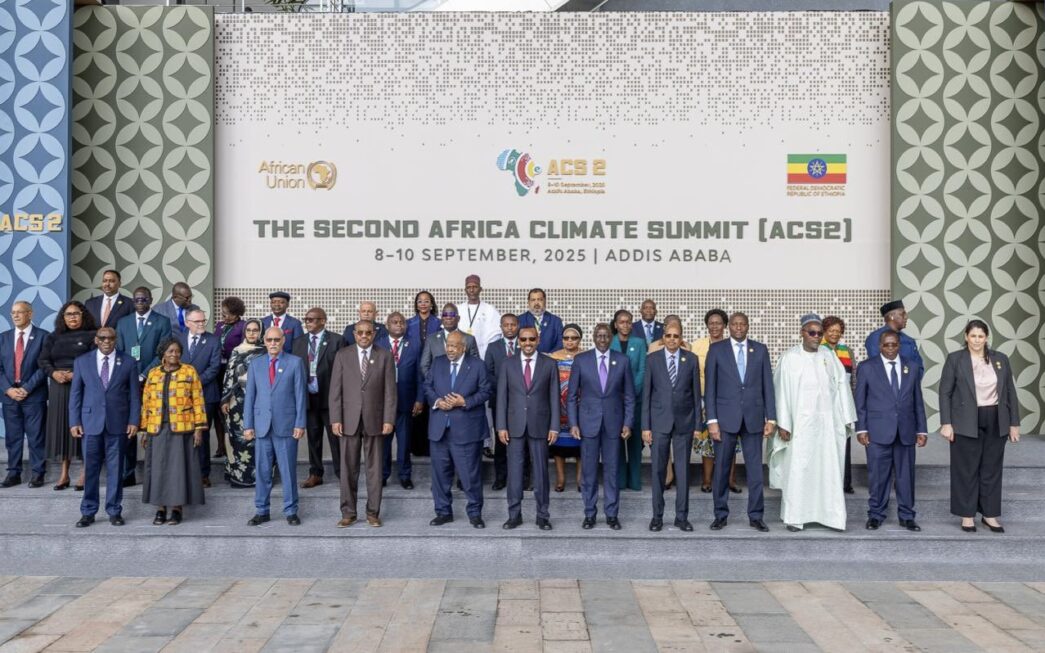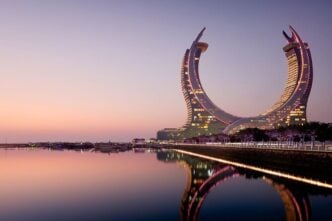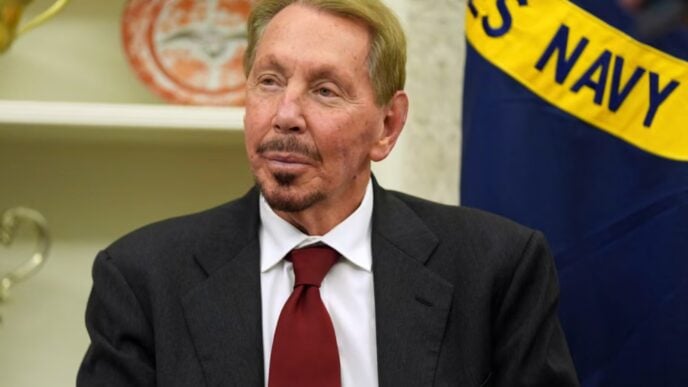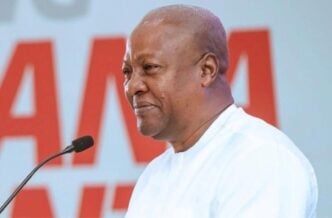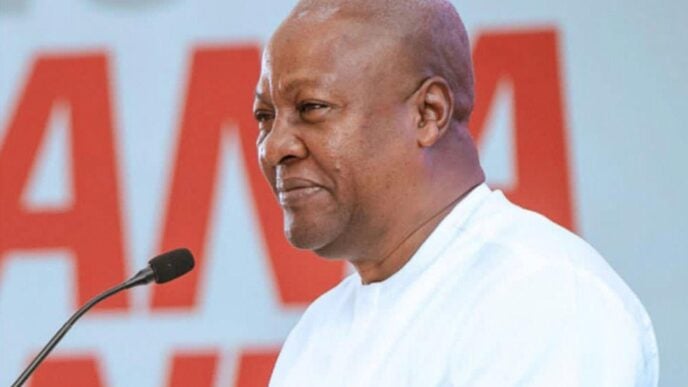
African leaders have adopted the Addis Ababa Declaration, urging developed nations to deliver climate finance as grants and honour past pledges.
The declaration was issued on Wednesday at the close of the second Africa Climate Summit (ACS2) held from September 8 to 10 in Addis Ababa, Ethiopia.
The leaders said Africa, despite contributing the least to global greenhouse gas emissions, bears the brunt of climate impacts while receiving inadequate support to fund adaptation and resilience.
Advertisement
They noted that the continent needs more than $3 trillion by 2030 to meet its climate goals but received only $30 billion between 2021 and 2022.
The declaration emphasised that climate finance is a legal obligation under the Paris Agreement and not an act of charity, calling for urgent reforms to international financial systems to make funding accessible, fair, and affordable.
The declaration also reaffirmed Africa’s ambition to become a global leader in renewable energy, with a target of installing 300 gigawatts (GW) of clean energy capacity by 2030, while expanding universal energy access and scaling up green industrialisation.
Advertisement
On adaptation, African leaders said it is the continent’s foremost climate priority, urging scaled-up support for food and water security, climate-smart agriculture, and resilient health systems.
They also pushed for operationalising the loss and damage fund to assist vulnerable countries hit hardest by climate shocks.
In his closing remark, Bankole Adeoye, African Union commissioner for political affairs, peace, and security, called for a united front, noting that the continent must be “recognised not as a problem, but as a solution”.
Adewoye thanked member states, civil society, researchers, and international partners for their contributions, describing the summit as “a turning point” in Africa’s climate agenda.
Advertisement
“We must move forward with one voice, one vision, and one brave commitment: to leave no African behind in the energy transition, to demand climate justice, and to invest boldly in African solutions for a dignified future,” Adewoye said.
Ethiopia’s President Taye Seassi called for major investments in solar, hydro, and other renewable energy sources across Africa.
He urged leaders to harness the continent’s abundant energy resources to drive sustainable growth and development.
Seassi highlighted that over 600 million Africans still lack access to electricity, stressing that unlocking Africa’s energy potential is key to creating jobs, powering industries, and advancing the continent’s green transition.
Advertisement
“Our climate action must empower every household, every industry, and create millions of jobs. Africa is not waiting for aid; it is a source of solutions for the world,” Seassi said.
The summit, which opened with a focus on energy, technology, and nature-based solutions, had African development banks and commercial lenders pledged over $100 billion through the Africa Green Industrialisation Initiative (AGII).
Advertisement
The initiative aims to create green industries and renewable energy projects across Africa.
Kenyan President William Ruto had described the initiative as a shift “from conversation to concrete collaboration”.
Advertisement
Key signatories to the AGII include the African Development Bank, Afreximbank, Africa50, Africa Finance Corporation, and major private banking groups, working alongside the African Continental Free Trade Area (AfCFTA) secretariat.
‘LOOPHOLES IN ENERGY TRANSITION AND FINACE COULD STALL CLIMATE ACTION’
Advertisement
Reacting to the declaration, civil society organisations (CSOs) commended African leaders for the outcome of the summit, but
said that provisions on fossil fuels, delayed finance and carbon markets could weaken the continent’s push for a just transition.
Mohammed Adow, director of Power Shift Africa, described the adoption of the declaration as “a decisive turning point for Africa”.
Adow noted that while the leaders projected ambition, the declaration still reflects trade-offs that could delay urgent climate action.
“The commitment to generate 300GW of renewable energy by 2030 is transformational. Africa is no longer on the margins but offering renewable power, minerals and food systems that can lead the world,” he said.
Omar Elmawi, convener of the Movement of Movements, said CSOs were pleased that adaptation finally took its place at the heart of the leaders’ declaration.
The declaration ended years of debate by affirming that adaptation is Africa’s top priority, given the continent’s exposure to droughts, floods, and rising temperatures.
Elmawi added that waiting until 2035 to mobilise the $1.3 trillion funds was “unacceptable”.
“We are glad that African leaders unapologetically asked for $1.3 trillion by 2035, mostly in grants, and called out the injustice of Africa attracting only 2% of renewable energy investments despite holding over 40% of the potential,” Elmawi said.
“Our people cannot wait another decade while they are losing homes, farms and livelihoods to climate disasters. And we are deeply worried that the mention of transitional fuels could be a loophole for fossil fuel companies to keep exploiting Africa.”
‘CRITICAL MINERALS RECOGNISED, BUT GOVERNANCE IS CRUCIAL’
One of the breakthroughs of the Addis Declaration was the formal recognition of Africa’s critical minerals including cobalt, lithium, and rare earths — as central to the continent’s climate and development agenda.
Nafi Quarshie, Africa director of the Natural Resource Governance Institute (NRGI), described it as a “milestone”.
Quarshie added that finance remains the “single biggest barrier” to Africa’s just transition.
“For the first time, minerals are recognised in an African climate declaration. But recognition alone is not enough. Without strong governance, the mineral boom could repeat the mistakes of the past,” Quarshie said.
“Leaders must embed minerals into COP30 priorities to fuel green industrialisation and shared prosperity instead of new sacrifice zones.”
Iskander Vernoit, founding director of the Imal Initiative for Climate & Development, said the declaration shows Africa’s determination to push for systemic change.
He argued that framing finance as justice, rather than aid, was one of Africa’s strongest messages heading to COP30.
“This shows Africa’s leadership in pushing for a fair international financial architecture. Climate finance is not charity. It is a legal obligation under Article 9 of the Paris Agreement,” Vernoit said.
Despite the ambitious renewable energy target, the declaration’s reference to “transitional fuels” was a flashpoint.
For many CSOs, this phrase is a diplomatic cover for expanding fossil gas projects in Africa.
Dean Bhebhe, senior adviser at Power Shift Africa, warned that pursuing gas would push African states deeper into debt.
“Yes, ambition is there. But transitional fuels open the door to gas, which history shows leaves countries like Mozambique and Nigeria in debt and dependence,” he said.
“Carbon markets are a wolf in sheep’s clothing — they displace people and are not people-centred. If this summit is truly African, then solutions must be rooted in dignity, distributive justice and renewable energy for the 600 million Africans without access.”
The Addis Declaration builds on the Nairobi Declaration of 2023, but goes further in aligning climate action with industrialisation, minerals, and finance reform.
Leaders now face the task of turning commitments into real projects that expand energy access, create jobs, and build resilience.
As Africa heads to COP30, the Addis Ababa Declaration will serve as the continent’s “climate playbook”.
Whether it delivers justice and prosperity for Africans will depend on how leaders navigate the contested ground between ambition and implementation.
